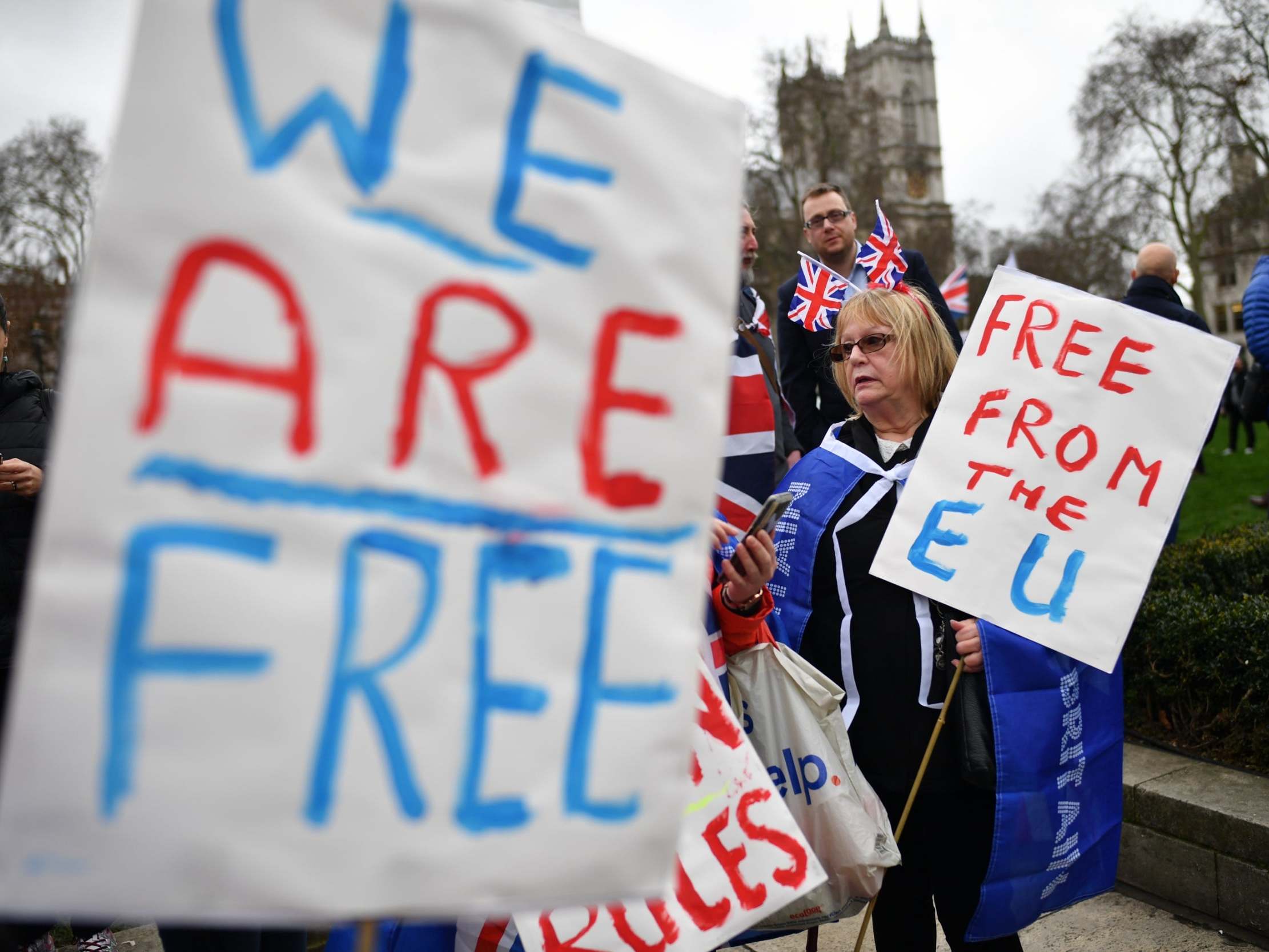The future is bright – but we must be prepared to walk away without an EU trade deal
The government’s position is that the negotiations with the EU will not be extended – which makes talks with the US vitally important, writes Iain Duncan Smith


After only an hour last week, the government rejected all the House of Lords amendments and then the Lords finally caved in. As I saw the Lords had capitulated, I reflected that it was a bit of a damp squib of an ending to three years and seven months of desperate parliamentary manoeuvring and utter debilitating chaos.
Since the election, the difference between the two parties couldn’t be starker. The Labour leadership candidates, all ideological Remainers, still seem to have a difficulty accepting that they got the mood of the British people so wrong. Not that you would see any sense of that from Jeremy Corbyn, for I note the latest internal report from the Labour Party says that Corbyn won the all the political arguments but only lost because of Brexit. Apparently the British people disgracefully let Labour down on 12 December. If that’s their read out, then am I the only one who finds it strange that the frontrunner in the contest is the architect of Labour’s failed Brexit policy?
By contrast, the effect on the Conservative Party is transformative. Every new MP knows that their victory wasn’t just to enable us to deliver Brexit but to govern, and vitally to govern for those who voted Conservative for the first time.
So, now the UK has officially left the European Union, we Conservatives need to remind ourselves that the job is not yet done. Now we enter the most difficult phase, negotiating the future relationship.
The position of the government is that the negotiations with the EU will not be extended, which means we have to be serious about walking away without a deal with the EU. That is why we mustn’t put all our trade eggs in the one EU basket. It is now vital, with the clock ticking, that we engage in full trade talks with the US – in parallel with the EU talks.
There is much we could do in the same window. After all, President Donald Trump has made it clear he believes we could achieve agreement on a significant number of areas before the end of the summer. It is vital we do this, not just to obtain leverage on the EU but more importantly because the US is our largest trading partner beyond the EU and is as keen as us to get something done, sector by sector if necessary. After all, it is worth noting that the US produces much the same range of products as the EU.
Beyond Brexit, we need to ensure we deliver to those ex-Labour supporters who decided that they would vote Conservative for the first time. They voted for change; they want themselves and their children to see dramatic improvements in the places they live and vitally, to their prospects. Plans for more investment in schools and the health service are good, but we must also reinvest the money taken out of the welfare system after the 2015 election.
That’s because if we are to deliver to those blue-collar voters, it’s vital we understand just how dangerously unbalanced our economy and our country has become. One statistic exemplifies this domination by London and the southeast. This region has the highest productivity in the whole of the EU, yet in the rest of the UK, no other region meets the average productivity for the whole UK. Worse, after decades of heavy migration, around 1 million extra people every three years, too many businesses now fail to train or reskill their workforce. We need to bring migration under control, for the unprecedented scale has affected those on low incomes the most. In the UK today, of those that start life at entry-level work, under 20 per cent will rise above entry level – one of the worst figures in the developed world.
Resolving that is also about understanding the lack of opportunity in too many of our towns and cities. London has excellent transport and communications links all around it and, as such, is a first-choice destination for investment. Other cities need to do something similar. We need to create “cluster” cities where local transport, communications and skills are interwoven. These clusters should then be linked up across the north and the midlands enabling them to compete across the world without reference to London. This would give inward investors real choice when considering the UK. This should be a priority.
Finally, this year, the government shouldn’t forget the pledge it made to soldiers who served in Northern Ireland that there would be an end to their vexatious pursuit on historic cases. The reason I mention this is because now that the Stormont House Agreement is in place, the historic cases review will be activated. We cannot drag our feet on the promised legislation. Ex-soldiers fear getting caught up in legal “fishing expeditions” and I would urge ministers to act quickly to end those fears and restore the concept of natural justice as well.
The future for Conservatives is bright but will only remain so if we as a party and a government remember who put us here and why. If we can transform the lives of those who voted for change, then we will deserve another term.
Beyond Brexit, this must be the first year of a plan to deliver real change.
Sir Iain Duncan Smith is a former cabinet minister and Conservative Party leader

Join our commenting forum
Join thought-provoking conversations, follow other Independent readers and see their replies